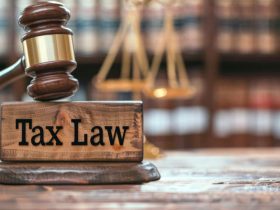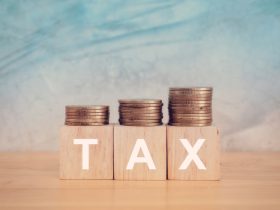Getting stuck on the incorrect tax code can give rise to some serious difficulties.
Your tax code indicates to your employer how much income tax to take out of your paycheck before you get it, so using the wrong tax code for your job can mean you’re paying too little or too much tax to HMRC.
Knowing how to deal with and rectify an incorrect tax code is crucial for ensuring fair and accurate taxation. When mistakes occur in this code, it can give rise to financial disparities and uncertainties.
Here, we explain everything you must understand about your tax code, such as where to check it, reasons for wrong tax code and what to do if it’s wrong.
Table of Content

How do I check my tax code?
HMRC allows you to verify your tax code for the current fiscal year online. You can access the functioning of your tax code through your tax account or the HMRC application.
If past tax years require verifying, you can do this online by signing in via your government gateway account to check hmrc issues payslip tax code.
Your tax-free personal allowance is a vital component of determining your tax code and should be evaluated while verifying your tax code.
What are the reasons for an incorrect tax code?
If you’re on an incorrect tax code, you could be paying more tax through PAYE (pay as you earn) than you should.
In numerous instances, HM Revenue and Customs(HMRC) pick up tax code issues, but if you observe something that looks wrong, you should contact and ask about it.
There are numerous reasons why your tax code could be incorrect:
1. You’ve commenced a new job
You may be on an incorrect tax code if your new company needs to be given a P45. This document demonstrates the income you got until you left your previous company, and with it, HMRC can determine whether you’re entitled to the personal allowance.
2. You earn money from an additional job or get pension income
You may be subject to a different tax code if you have multiple jobs or income sources.
3. Your income has changed
Your income level can impact your ability to pay taxes.
4. Benefits from your job
Starting or stopping any perks you’re paid from your job, like a company car, accommodation or financing, will impact your paycheck and how much tax you owe.
5. Taxable state benefits
If you stop (or start) receiving payments from a government agency that you are accountable to pay tax on – for instance, a bereavement allowance, a state pension, incapacity benefit, or work and support allowance – it could impact your tax code.
If HMRC doesn’t have sufficient details about your income or tax obligations, it may put you on an emergency tax code. This implies that the basic rate of 20% or the higher rate of 40% will be applied to your pay.
The most prevalent emergency tax code will end with M1 or W1, based on whether you’re paid every month or weekly.
How to modify your tax code?
If you spot that you’re on the wrong tax code, notify HMRC immediately; once it has enough data on the facts, your code will be modified. The tax office will then send you a document identified as a ‘coding notice’ when it’s been changed. The updated information will also be provided to your employer or pension provider.
Verify any payslip you get after that time to ensure the new tax code appears correctly. You can tell HMRC via its ‘Check your income tax‘ online service, where you can modify your employment data and inform HMRC about a change in income that may have impacted your tax code, or contact HMRC directly.
If you think you’re owed a reimbursement, you can also ask this through the HMRC application.
HMRC may request additional proof to confirm your situation. Be ready to provide documents like payslips, P45/P60 forms, or any evidence of modifications in your financial position.
After sending the required information, track any updates to your tax code. HMRC will send you a new tax code, which must ensure matches your current situation.
Can I claim tax back after having the wrong tax code?
If there is a mistake with your tax code, you will pay an improper income tax amount. Being on the incorrect tax code can easily see you paying too much tax on your income.
The good thing is you can claim back any overpaid taxes you’re owed as a tax refund. You can file a tax return for up to four years! You’ll be required to give HMRC all the data needed to fix your tax code and determine which refund you’re owed.
Remember that it’s essential to rectify your tax code when it’s wrong, even if it results in paying more tax. The longer it takes for HMRC to figure out the error, the more difficulties might get when they eventually do.

Final thoughts
It may look like an arbitrary combination of letters and numbers, but your tax code is essential when deciding how much of your hard-earned money you must pay as a tax to HMRC.
Taking charge of your tax code is vital to preserving financial stability. This guide provides the information and procedures to handle the correction process successfully.
By tackling a wrong tax code promptly, you not only avoid financial inconsistencies but also promote confidence in your ability to oversee your tax operations carefully.









